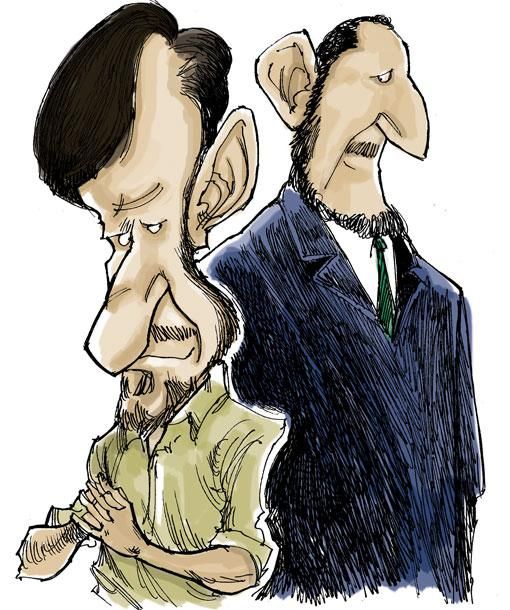Last week I was part of an Al Arabiya television programme with an Iranian participant and other Arab panelists from various political backgrounds. The topic was timely: 'Iran and the Arabs - Friends or Foes?' Any assessment to determine whether someone is a friend or a foe must take a stock of the relationship - is it symmetrical and based on a balance of power, or is it lopsided and favours one over the other? Does one side exploit, interfere and weaken the other side and undermine its security and prosperity? Answering such queries provides the exact yardstick to judge whether the relationship is friendly or hostile.
Historically, the Arab-Iran relationship has been based on much rivalry, competition and mistrust. The Persian Empire from 550 BC to 630 AD was among the most powerful, until the Islamic caliphate was able to topple that empire and spread Islam as the religion and Arabic as the language.
The majority of the Iranian people today are Muslim. And there is a continued influence of Arabic on Persian, which uses the Arabic script. Also, almost 60 per cent of the Persian language is derived from Arabic.
The Persians look down upon the Arabs, and always sought dominance over them, even during the days of the Shah. They always interfered in Arab affairs.
We must admit that Iran is a major regional power, while the Arab world is fragmented and lacks a coherent approach. There is a lot of bickering. While the Arab side by and large longs for a strategic partnership with Iran - an alliance that could strengthen both parties - the Iranians do not share that view. They believe their strategic interests are better served by a fragmented and disoriented Arab order.
Iran under the Shah was a major power and the 'policeman of the Gulf'. The Shah boasted that only Iran was capable of preserving peace and security in the Middle East. Iranian-American writer Trita Parsi quotes Golam Reza Afkhami, the Shah's adviser, in his outstanding book Treacherous Alliance: The Secret Dealings of Israel, Iran and the US as saying: "No one could match Iran's culture, or history. It is important to realise this to understand why the Shah did what he did."
To give another example of the Iranian bravado and arrogance, Parsi says that the Shah's minister of court wrote in his diary in 1971 (the year Iran occupied the three UAE islands) that "Iran was rapidly assuming leadership not only over the& Gulf, but over the Middle East and its entire oil".
The Shah's hubris was cloaked in Iranian nationalism, and he bequeathed it to the Islamic regime in Iran. This regime, under the garb of Islam, engages in a show of rhetoric against the Great Satan, imperialism and Zionism. They know this sells on the Arab and Muslim street and among the masses, where Iran is winning the battle of hearts and minds among Arabs and Muslims for standing up for the oppressed and the downtrodden against the West and Israel.
Three reasons could be advanced to explain Iran's mindset and strategic thinking and why Iran feels emboldened about spreading its influence from Afghanistan to the Mediterranean Sea. The first is the historical baggage that Iran has carried for centuries by being an imperial power with a rich and vibrant civilisation.
Second, Iran through the centuries has sought to weaken others, and followed the old divide and rule strategy. It employed this principle successfully and smartly against its Arab rivals.
Third, it engages in a game of chess and not a boxing match with the Americans. It plays its cards -the nuclear programme, Afghanistan, Iraq, Gulf security, oil, Hezbollah and Hamas - carefully.
Furthermore, Iran leads the so-called axis of resistance in order to project power and be taken seriously by the Americans in particular, and the other powers that have a stake in the region in general. Iran's game is being played and fought in the Arab theatre.
It is against Arab interests and is splitting the Arab world. Iran is interfering in Arab affairs from Bahrain to Morocco. It also interferes in Iraq, and has allied itself with Syria. Iran has the audacity to support non-state actors against their own regime to further weaken the Arabs.
The final conclusion of the Al Arabiya programme on Iran and the Arabs was typical of any conference or panel on Arab-Iran relations. Iran is exploiting the Arab world.
What exacerbates the situation is the Arabs' lack of resolve to make Iran pay heavily for its interference in their affairs. They continue to lack the deterrence and the counter-tactics and as long as this persists, Iran will be the regional power by default and because of infighting and divisions in the Arab world.
When will Arabs learn?
Dr Abdullah Al Shayji is Professor of International Relations and the Head of the American Studies Unit at Kuwait University.













